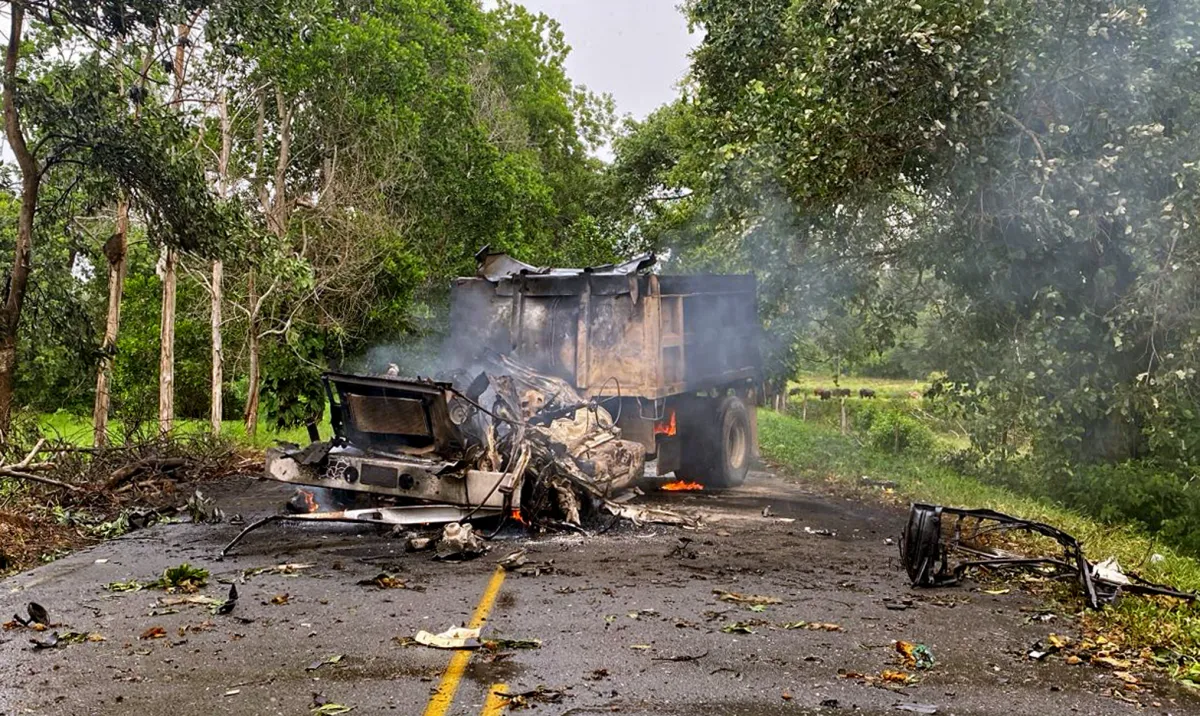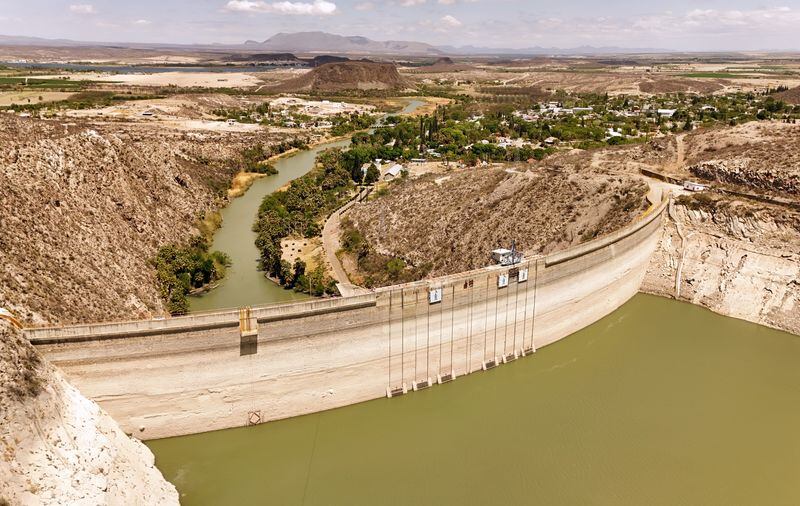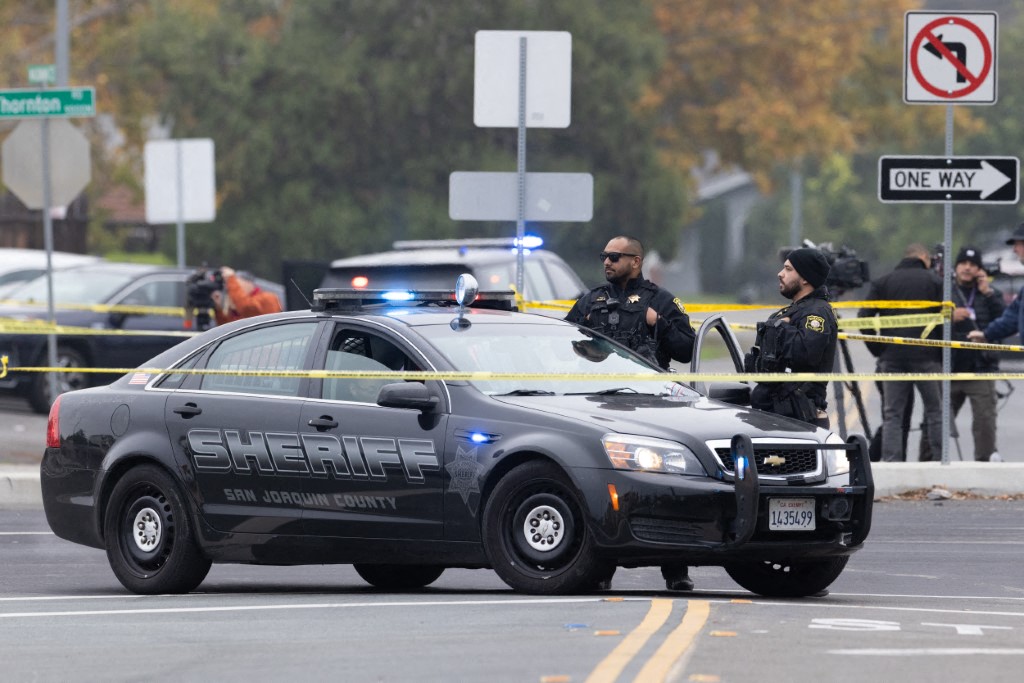International
Petro considers that the ELN attack in Arauca “closes a peace process with blood”

Colombian President Gustavo Petro condemned the attack of the National Liberation Army (ELN) guerrillas against a military base in Puerto Jordán, in the department of Arauca (east), which left two soldiers dead and 27 injured, and assured that “it is an action that closes a peace process with blood.”
“The consequences of the actions and the flow of history today bring us a dramatic and repeated event in our last years, a dump loaded with explosives that injures 27 young people and kills two, within the data I have, put by the ELN with whom we were talking about peace,” said Petro the inauguration of magistrate Claudia Regina Expósito as a member of the Superior Council of the Judiciary.
The president compared the attack to the attack against the Colombian Police Cadet School in Bogotá, which in January 2019 left 20 dead and 68 injured, including an Ecuadorian cadet, and which put an end to the dialogue that the Government was maintaining with that guerrilla at that time.
“And obviously, as happened that time in another place near here, at the Police School, because many police officers died, ensigns who were studying there, because it is practically an action that closes a peace process with blood,” he added.
The Colombian Government and the ELN began a new peace negotiation in November 2022 in Caracas that, however, stalled at the beginning of this year due to the demands of the guerrilla that the Executive remove them from the list of terrorist groups and abandon regional dialogues such as the one it maintains in the department of Nariño (southwest) with Comuneros del Sur, supposedly split from the ELN.
During the negotiations in Caracas, Havana and Mexico City, the parties agreed to a one-year bilateral ceasefire, the longest agreed with that guerrilla, which ended on August 3, after which the ELN resumed its attacks against public force and infrastructure in different parts of the country, especially in Arauca, where it is particularly strong.
“And it’s like an eternal becoming, to silence a part of the people and continue in wars, killing each other again and again as if that were our story,” the president lamented.
The Minister of the Interior, Juan Fernando Cristo, also expressed himself in this line: “You cannot follow a negotiating table in the midst of the blood of our wounded soldiers, of the civilian population. The ELN did not understand the message (…) has lost a historic opportunity to negotiate peace; it insists on violence, it insists on harming Colombians.”
“The ELN, definitely, was left by the train of history,” Cristo concluded.
The mayor of Bogotá, Carlos Fernando Galán, considered that “the decision of the National Government to end the peace process is the right one.”
“Colombia cannot negotiate with those who have not given any demonstration of having a will for peace,” Galán said in his X account, in which he regretted “the attack that claimed the lives of two soldiers and injured another 27 in Jordán, Arauca.”
The action was at the Puerto Jordán military base, in Arauca (east), which “was attacked with improvised explosive devices thrown from a dump mantip.”
According to figures provided by the Ministry of Defense, 27 soldiers were injured, “of which 20 have splinters” and seven are “seriously injured.”
Last Sunday, two soldiers died in a rural area of Tame (Arauca) in an attack attributed to the ELN that shot them while they were at a checkpoint.
This terrorist escalation also includes attacks on the Caño Limón-Coveñas and Bicentenario pipelines, two of the most important in the country.
The Caño Limón-Coveñas pipeline, 770 kilometers long, transports oil from the Arauca wells to Coveñas, a Colombian port in the Caribbean Sea.
International
Police investigate deaths of Rob Reiner and wife as apparent homicide

The Los Angeles Police Department (LAPD) is investigating the deaths of Hollywood actor and filmmaker Rob Reinerand his wife as an “apparent homicide,” amid a wave of tributes to the director of classics such as When Harry Met Sally.
According to U.S. media reports on Sunday, Rob Reiner and Michele Singer Reiner were found dead at their Los Angeles mansion with what appeared to be stab wounds.
Several political figures shared messages of condolence following the reported deaths of the director of A Few Good Menand his wife.
While the LAPD did not officially confirm the identities of the victims, it stated that homicide detectives were dispatched to the Reiner residence.
“At this time, no additional details are available and the investigation into an apparent homicide is ongoing,” the Los Angeles Police Department said in a statement posted on social media.
LAPD Deputy Chief Alan Hamilton told reporters that no arrests have been made and that no individuals are currently being questioned as suspects.
“I’m not going to confirm whether anyone is being questioned at this moment or not. We are going to try to speak with as many family members as we can,” Hamilton said.
CNN reported that a family spokesperson confirmed the deaths of Reiner and his wife.
California Governor Gavin Newsom, former U.S. President Barack Obama, and former Vice President Kamala Harrisissued statements expressing their condolences.
International
U.S. and Mexico Reach Deal to Address Water Deficit Under 1944 Treaty

The United States and Mexico have reached an agreement to comply with current water obligations affecting U.S. farmers and ranchers and for Mexico to cover its water deficit to Texas under the 1944 Water Treaty, the U.S. Department of Agriculture said in a statement.
The department уточified that the agreement applies to both the current cycle and the water deficit from the previous cycle.
On Monday, U.S. President Donald Trump accused Mexico of failing to comply with the water-sharing treaty between the two countries, which requires the United States to deliver 1.85 billion cubic meters of water from the Colorado River, while Mexico must supply 432 million cubic meters from the Rio Grande.
Mexico is behind on its commitments. According to Washington, the country has accumulated a deficit of more than one billion cubic meters of water over the past five years.
“This violation is severely harming our beautiful crops and our livestock in Texas,” Trump wrote on Monday.
The Department of Agriculture said on Friday that Mexico had agreed to supply 250 million cubic meters of water starting next week and to work toward closing the shortfall.
Agriculture Secretary Brooke Rollins, quoted in the statement, said Mexico delivered more water in a single year than it had over the previous four years combined.
Trump has said that if Mexico continues to fall short of its obligations, the United States reserves the right to impose 5% tariffs on imported Mexican products.
Mexico’s Deputy Foreign Minister for North America, Roberto Velasco, said that a severe drought in 2022 and 2023prevented the country from meeting its commitments.
International
Several people shot in attack on Brown University campus

Several people were shot on Saturday in an attack on the campus of Brown University, in the northeastern United States, local police reported.
“Shelter in place and avoid the area until further notice,” the Providence Police Department urged in a post on X. Brown University is located in Providence, the capital of the state of Rhode Island.
U.S. President Donald Trump said on his social media platform Truth Social that he had been briefed on the situation and that the FBI was on the scene.
At 5:52 p.m. local time (11:52 p.m. GMT), Brown University said the situation was still “ongoing” and instructed students to remain sheltered until further notice.
After initially stating that the suspect had been taken into custody, Trump later posted a second message clarifying that local police had walked back that information. “The suspect has NOT been apprehended,” the U.S. president said.
-

 International4 days ago
International4 days agoWashington declares State of Emergency as atmospheric river brings severe flooding
-

 International4 days ago
International4 days agoU.S. to require five-year social media history from tourists under Visa Waiver Program
-

 Central America3 days ago
Central America3 days agoHonduras election crisis deepens as CNE president denounces intimidation attempts
-

 International3 days ago
International3 days agoCuba battles out-of-control dengue and chikungunya epidemic as death toll rises to 44
-

 Central America4 days ago
Central America4 days agoOAS and EU urge honduran political actors to respect vote results and avoid unrest
-

 International3 days ago
International3 days agoColombia says it would not reject Maduro asylum request as regional tensions escalate
-

 International2 days ago
International2 days agoSeveral people shot in attack on Brown University campus
-

 International3 days ago
International3 days agoEcuador on track for record violence as homicides hit highest level in Latin America again
-

 International4 days ago
International4 days agoSix ecuadorian soldiers jailed pending trial for alleged extrajudicial execution
-

 International2 days ago
International2 days agoU.S. and Mexico Reach Deal to Address Water Deficit Under 1944 Treaty
-

 Central America16 hours ago
Central America16 hours agoPanama seizes over three tons of drugs hidden in Caribbean port container
-

 International4 hours ago
International4 hours agoPolice investigate deaths of Rob Reiner and wife as apparent homicide
-

 Central America4 hours ago
Central America4 hours agoOAS urges swift recount in Honduras as election results remain uncertain


























